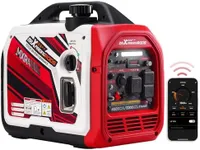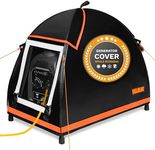Buying Guide for the Best Generator For Rvs
Choosing the right generator for your RV is crucial to ensure you have a reliable power source for all your needs while on the road. The right generator will provide you with the necessary power to run your appliances, charge your devices, and keep your RV comfortable. To make an informed decision, you need to consider several key specifications that will help you determine which generator is the best fit for your RV lifestyle.Power Output (Wattage)Power output, measured in watts, indicates how much electricity the generator can produce. This is important because it determines what appliances and devices you can run simultaneously. Generators typically range from 1,000 to 10,000 watts. For light use, such as charging devices and running small appliances, a generator with 1,000 to 2,000 watts may suffice. For moderate use, including running a microwave, TV, and a few other appliances, look for 2,000 to 4,000 watts. For heavy use, such as running an air conditioner and multiple appliances, you may need 4,000 watts or more. Assess your power needs by listing the wattage requirements of your essential devices and choose a generator that can handle the total load.
Fuel TypeGenerators can run on various types of fuel, including gasoline, propane, and diesel. The fuel type affects the generator's efficiency, cost of operation, and availability of fuel. Gasoline generators are common and easy to refuel but can be less efficient and require more maintenance. Propane generators are cleaner and have a longer shelf life but may be less powerful. Diesel generators are efficient and durable but can be noisier and more expensive. Consider the availability of fuel and your preference for maintenance and efficiency when choosing the fuel type.
Noise LevelThe noise level of a generator, measured in decibels (dB), is important for your comfort and that of your neighbors. Generators can range from 50 dB (quiet) to over 80 dB (loud). For a peaceful camping experience, look for generators with a noise level of 60 dB or lower. If you plan to use the generator in more remote areas where noise is less of a concern, a higher noise level may be acceptable. Always check the noise level specifications and consider how it will impact your camping environment.
PortabilityPortability refers to how easy it is to move and transport the generator. This is important because you may need to store the generator in your RV and move it around your campsite. Portable generators typically have handles and wheels for easy maneuvering. Smaller generators (under 50 pounds) are easier to carry but may have lower power output. Larger generators (over 100 pounds) provide more power but can be more challenging to move. Consider your physical ability to move the generator and the space available in your RV when evaluating portability.
Run TimeRun time indicates how long the generator can operate on a full tank of fuel. This is important for planning how often you will need to refuel, especially during extended use. Generators with longer run times (8-12 hours) are ideal for overnight use or long periods without refueling. Shorter run times (4-6 hours) may be sufficient for occasional use or shorter trips. Consider your typical usage patterns and how often you want to refuel when choosing a generator with the appropriate run time.
Inverter TechnologyInverter technology allows the generator to produce clean and stable power, which is important for sensitive electronics like laptops, smartphones, and medical devices. Inverter generators are typically quieter, more fuel-efficient, and provide higher quality power compared to conventional generators. If you plan to power sensitive electronics, an inverter generator is a better choice. If you only need to power basic appliances, a conventional generator may be sufficient. Consider the types of devices you will be using and the importance of clean power when deciding on inverter technology.
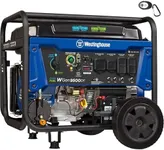

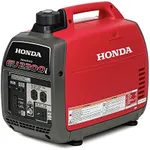
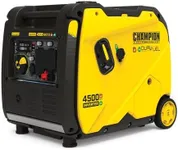
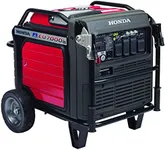
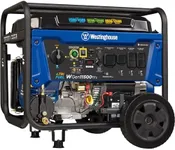
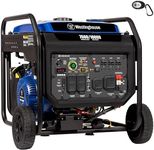

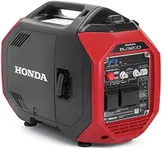


![[Upgraded Version] ALLPOWERS S2000 Portable Power Station 2000W (Peak 4000W) MPPT Solar Generator 1500Wh Backup Battery with 4 AC Outlets for Outdoor Camping RV Emergency Off-Grid](https://images-proxy.bestreviews.guide/YtTaRg6uNv-LaNq9_7sPyzjq62s=/0x150/https://m.media-amazon.com/images/I/31g7wSEKaOL._AC_CX679_.jpg)
